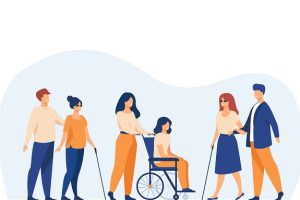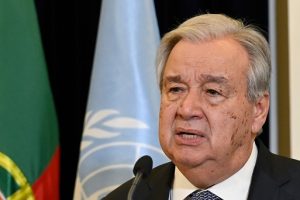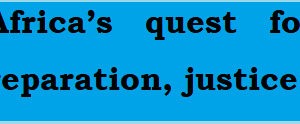The African energy sector needs the increased role of women and young people. Recently, the Renewable Energy Solutions for Africa Foundation (RES4Africa) and Ethiopian Women in Energy (EWiEn) signed a Memorandum of Understanding (MoU) to join efforts in supporting the empowerment and participation of women and young people in the continent’s clean energy sector.
RES4Africa’s mission is to create an enabling environment for renewable energy investments in African countries to meet local energy needs for sustainable growth, while EWiEn strives to connect and empower Ethiopian women working in the energy sector.
Together, the parties’ goals are highly complementary and pursue the same long-term objective to promote the development of renewable energy solutions in Africa. The signing of the agreement marks an important opportunity in the development process of the renewable sector, whose stakeholders in recent years have recognized the growing need to involve more young people and women to ensure a local inclusive development.
The two organizations will collaborate in the participation and co-organization of events, webinars and capacity building opportunities, as well as support each other in the engagement and dialogue with African entities, international institutions and sectorial stakeholders operating in the promotion of gender balance and women and youth participation. The parties are also committed in identifying synergies, exchanging know-how and organizing outreach and advocacy activities to raise awareness.
“Women empowerment and youth participation are not only a mandatory condition but also a strong enabler to achieve the SDG7 and to guarantee universal access to energy by 2030”, said Roberto Vigotti, RES4Africa’s Secretary General.
“The partnership with EWiEn, an Ethiopian association that strongly believes in the need of bringing women and young people at the heart of the energy landscape, will help RES4Africa pursuing its mission: to transform Africa’s energy sector, making sure no one is left behind.”
“Energy is a right for all and clean and affordable energy is the most needed. However, energy in developing nations takes a different narrative, while women being the primary victims of energy poverty,” noted Filagot Tesfaye, President of EWiEn adding that “EWiEn with its partnership with RES4Africa, will advocate the role of women as change agents, not only as consumers of clean energy, so that to secure the gender balance in the sector.”
Many parts of Africa have been experiencing rapid economic growth and improving social conditions. The continent’s average real gross domestic product growth reached 3.6 per cent in 2017 and is projected to rise to around 4 per cent in 2018 and in 2019. Given the continent’s large and growing population, energy demand will rise quickly in the decades to come, according to the International Renewable Energy Agency (IRENA).
IRENA, the principal platform for international co-operation, a centre of excellence, and a repository of policy, technology, resource and financial knowledge on renewable energy has been promoting the widespread adoption and sustainable use of all forms of renewable energy, including bioenergy, geothermal, hydropower, ocean, solar and wind energy, in the pursuit of sustainable development, energy access, energy security and low-carbon economic growth and prosperity.
Endowed with substantial renewable energy resources, Africa can adopt innovative, sustainable technologies and to play a leading role in global action to shape a sustainable energy future. Supply unreliability is a concern holding back economic development, with most countries facing frequent blackouts and often relying on expensive and polluting solutions.
Clean, indigenous and affordable renewable energy solutions offer the continent the chance to achieve its economic, social, and environmental and climate objectives. Sustainable development and use of the continent’s massive biomass, geothermal, hydropower, solar and wind power have the potential to rapidly change Africa’s current realities.
Africa can adopt innovative, sustainable technologies and play a leading role in global action to shape a sustainable energy future. The continent could meet nearly a quarter of its energy needs from indigenous and clean renewable energy sources by 2030 and increase the share of renewables in its total energy mix to as much as two-thirds by 2050.
It has pursued strategic, results-oriented partnerships with African organisations and development partners since its inception in 2011. In July 2011, IRENA convened a high-level consultative forum where Sub-Saharan African nations identified priority areas for joint action between intergovernmental agencies, governments and regional partners.
Accordingly, IRENA has adopted a comprehensive, practical approach, providing technical support through regional, country-specific and thematic initiatives. These aim to develop knowledge, establish stronger policy and investment frameworks, and enhance institutional and human capacities to accelerate renewable energy deployment.
Africa’s economy is growing at unprecedented speed. One of the core challenges as African countries continue to grow and develop is energy: meeting rising demand for power, transport and other uses in a way that is economically sustainable and safeguards livelihoods. Economic growth, changing lifestyles and the need for reliable modern energy access is expected to require energy supply to be at least doubled by 2030. For electricity it might even have to triple.
Africa is richly endowed with renewable energy sources, and the time is right for sound planning to ensure the right energy mix. Decisions made today will shape the continent’s energy use of decades to come. The world is increasingly embracing modern renewable energy technologies. For many years they have been supported because of environmental and energy security concerns but in a rising number of situations they are now seen as the most economic option.
The use of modern renewables is growing in Africa, and fostering this growth is imperative. African countries are in a unique position: they have the potential to leapfrog the traditional centralised-utility model for energy provision.
Africa 2030 is part of IRENA’s global REmap 2030 analysis, which outlines a roadmap to double the share of renewables in the world’s energy mix within the next 15 years. It is based on a country-by-country assessment of energy supply, demand, renewable-energy potential, and practical technology choices for households, industry, transport and the power sector. And, along all the way empowering the African women and youth must be the central role of renewable energy development.
BY HAFTU GEBREZGABIHER
The Ethiopian Herald April 28/2021



